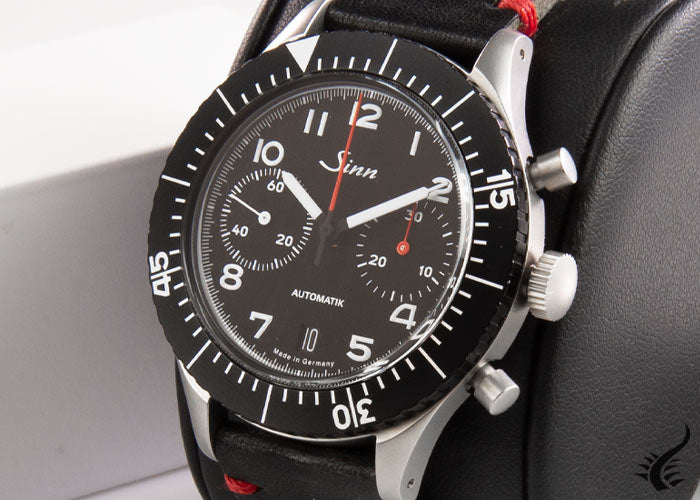Menu

0
Your Cart is Empty

Your Cart is Empty
February 17, 2022 3 min read
Glass is one of the most common materials in watchmaking, it has become a basic so it goes practically unnoticed - not only because of its transparency -. Used for centuries, it has ended up being an essential piece in watchmaking items. It can make a significant difference from one watch to another and depending on the brand and price there are different types and characteristics.
In past decades, when the pocket watch was more common, one of the main problems was the fragility of its glass. In fact, in some luxury watches, the so-called rock crystal was used, a natural glass noted for its great sharpness and brilliance, although it was very fragile.
However, with the arrival of the wristwatch, this problem was not for the better. In some cases, such as the military and sportsmen, a protective grille was used to prevent scratches and breakage.
Nowadays other types of materials are used. Depending on the treatment to which the glass has been subjected and the materials it is made of, it can be found more or less resistant, in relation to its price.
In general, the types of glass can be divided into 3 large categoriess:
Also known as "Hesalite", "Perspex" or "Plexiglas". They all belong to the class of acrylic glass.

Sinn 158 Automatic watch
It’s the cheapest of the three categories and it was widely used until the 1980s. This type of glass is actually plastic, so it is flexible, transparent, and very light. It is difficult to break, but scratches easily. Fortunately, scratches can be easily buffed out.
This type of glass is also often used in retro-inspired watches as it can be manipulated effortlessly, allowing watchmakers to create domed crystals very easily, creating a nice distortion when viewed from an angle.
Mineral glass is created from silica and provides better scratch protection than acrylic glass. It is almost identical to normal window "glass" and therefore has similar properties.

It is also known as 'Hardlex' and there are some brands that make blends. For example Junghans, Zeppelin and Iron Annie use Mineral K1 glass.
K1 glass is a heat-treated mineral crystal that is more scratch resistant than normal mineral crystal. It could be said that the K1 glass is the improved version of the mineral crystal.

Iron Annie Amazonas Impression automatic watch
Most of the sapphire crystal found in watches is actually synthetic (man-made), rather than the natural material. Like acrylic, it's not technically "glass," but crystallized, transparent aluminum oxide, usually produced in a laboratory. It is difficult to scratch a sapphire crystal with anything other than a piece of diamond.

AlpinerX Smart Outdoors Freeride World Tour quartz watch
On the Mohs Scale of Hardness, sapphire has a score of 9/10. It is the second hardest substance on Earth.
Depending on your goals, you should choose one or another type of crystal.
| Acrylic | Mineral | Sapphire | |
| Cost | € | €€ | €€€ |
| Shock resistance | Flexible, withstands strong impacts | Strong, although it can splinter with very strong impacts | Very strong, although it can break with very strong impacts. |
| Scratch Resistance | Low | Regular | High |
| Reflective | Low | Regular | High |
Comments will be approved before showing up.
April 12, 2025 2 min read
Read MoreApril 10, 2025 4 min read
Read MoreSign up to get the latest on sales, new releases and more …